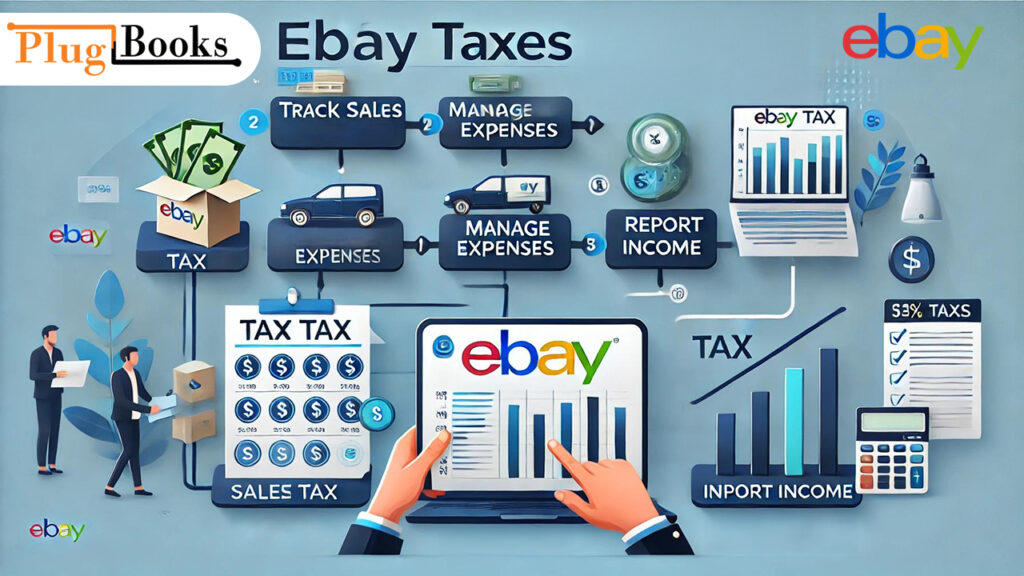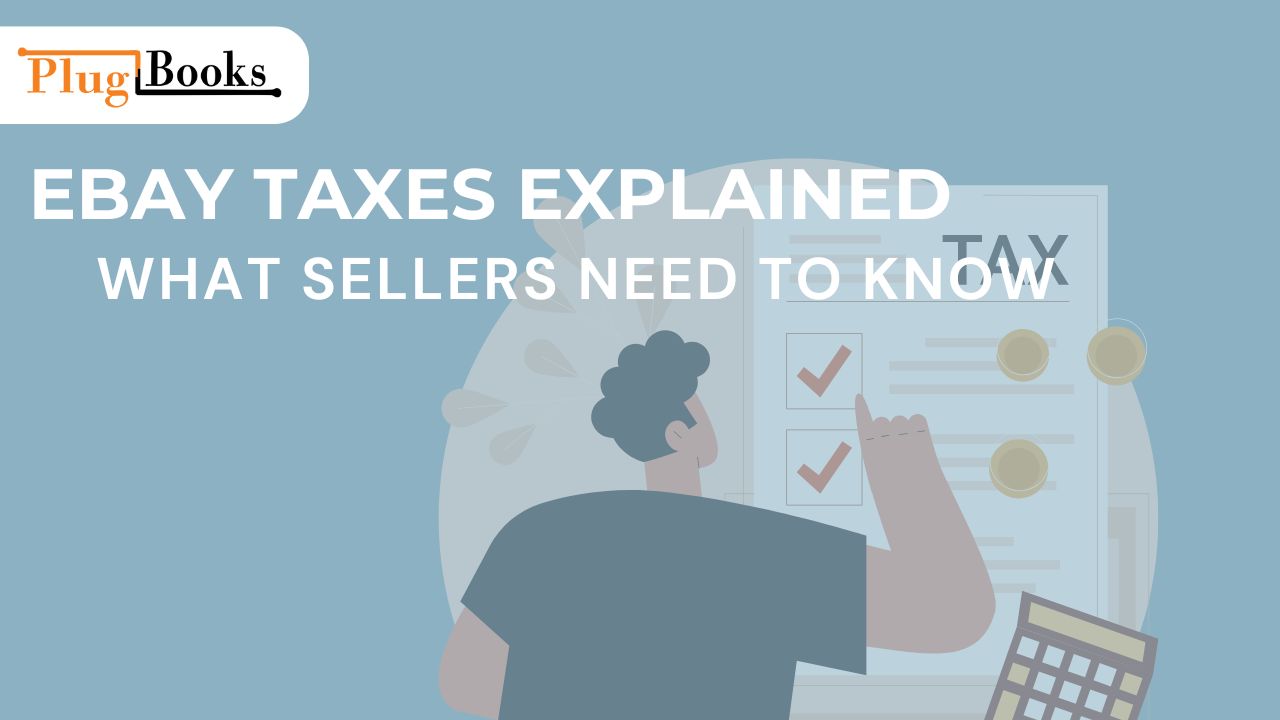eBay Taxes Explained — Selling on eBay can be exciting, whether you’re clearing out your closet or running a thriving e-commerce store. But when tax season rolls around, things can get a little tricky. Questions like, “Do I owe taxes on eBay sales?” or “What is eBay’s role in sales tax collection?” are common. If you’ve been searching for clear, concise answers about eBay taxes, you’ve come to the right place!
In this guide, we’ll break down what you need to know about taxes on eBay, from sales tax obligations to income tax reporting. Let’s get started!
What Are eBay Taxes?
Taxes on eBay transactions generally fall into two categories: sales tax and income tax. Here’s how they work:
Sales Tax on eBay
eBay automatically collects and remits sales tax for buyers in certain states, as required by law. This means you don’t need to calculate or collect the sales tax yourself if you’re selling in those states. However, it’s essential to:
- Check if eBay is collecting sales tax for your state.
- Understand how this affects your pricing and profit margins.
Income Tax on eBay Earnings
Whether you’re a casual seller or running a full-fledged business, income from eBay sales is taxable. You’re required to report this income on your tax return.
- For casual sellers, occasional sales of personal items may not be taxed.
- For regular sellers, you’ll need to track your revenue and expenses to determine your taxable income.

Key Considerations for eBay Sellers
Navigating eBay taxes doesn’t have to be overwhelming. Here are some practical steps to stay compliant:
1. Know Your Thresholds
eBay provides a 1099-K form if your sales meet the IRS reporting threshold (usually $600 annually). If you don’t receive this form, you’re still responsible for reporting taxable income.
2. Track Your Expenses
Deducting expenses like shipping, eBay fees, and the cost of goods sold (COGS) can lower your taxable income. Keeping detailed records is essential.
3. Understand Sales Tax Obligations
While eBay handles most sales tax collection, double-check your responsibilities, especially if you sell in states with unique tax rules.
4. Use Accounting Tools
Software like PlugBooks can simplify tracking your income, expenses, and tax obligations. It’s especially useful for sellers with high transaction volumes, helping you stay organized and tax-ready year-round.
Common Questions About eBay Taxes
Do I need a business license to sell on eBay?
This depends on your state’s requirements and how frequently you sell. Casual sellers usually don’t need a license, but if you’re running a business, check local regulations.
Are eBay fees tax-deductible?
Yes! Fees charged by eBay for listing or selling items can be deducted as business expenses.
What if I sell internationally?
You may need to navigate VAT or other tax rules depending on the buyer’s country. Consult a tax professional for guidance.
Final Thoughts on eBay Taxes
While taxes might not be the most exciting part of selling on eBay, staying informed and organized can save you stress—and money. By understanding sales tax rules, tracking your income and expenses, and leveraging tools like PlugBooks, you’ll be well-prepared to tackle tax season with confidence.
Learn more about eBay Taxes visit eBay Tax information
Need help managing your finances? Visit PlugBooks for tools tailored to online sellers.

Common Questions About eBay Taxes
Q: What is Form 1099-K?
Form 1099-K is issued by eBay if your sales exceed a certain threshold (currently $600 in the U.S.). It details your gross sales for the year and is reported to the IRS.
Q: Can I deduct expenses?
Yes! Expenses like shipping, eBay fees, and even packaging materials can reduce your taxable income.
Q: What if I don’t report my eBay income?
Failure to report income can result in penalties, interest, and even audits. It’s always better to stay compliant.




2 thoughts on “eBay Taxes Explained: What Sellers Need to Know”